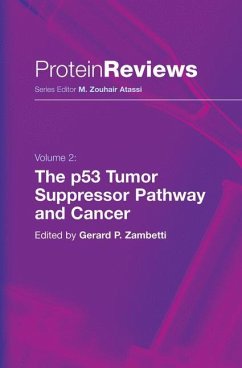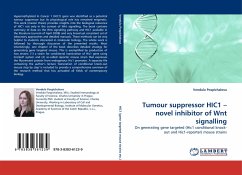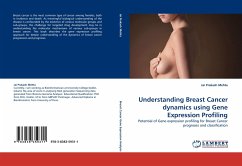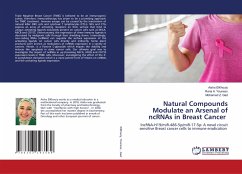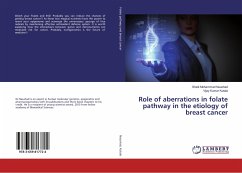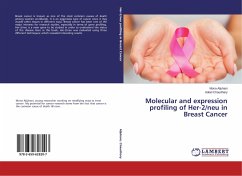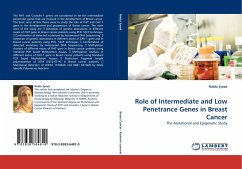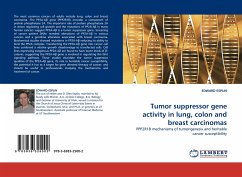
Tumor suppressor gene activity in lung, colon and breast carcinomas
PPP2R1B mechanisms of tumorigenesis and heritable cancer susceptibility
Versandkostenfrei!
Versandfertig in 6-10 Tagen
32,99 €
inkl. MwSt.

PAYBACK Punkte
16 °P sammeln!
The most common cancers of adults include lung, colon and breast carcinoma. The PP2A-A gene (PPP2R1B) encodes a component of protein phosphatase 2A. The important role of protein phosphatase 2A in down regulating cell growth and the mutations of PP2A-A in many human cancers suggest PP2A-A is a tumor suppressor gene. Screening of cancer patient DNAs revealed alterations of PP2A-A in various cancers and a germline alteration associated with breast carcinoma. Biochemical studies showed mutations in PP2A-A reducing its ability to bind the PP2A complex. Transfecting the PP2A-A gene into cancer cell...
The most common cancers of adults include lung, colon and breast carcinoma. The PP2A-A gene (PPP2R1B) encodes a component of protein phosphatase 2A. The important role of protein phosphatase 2A in down regulating cell growth and the mutations of PP2A-A in many human cancers suggest PP2A-A is a tumor suppressor gene. Screening of cancer patient DNAs revealed alterations of PP2A-A in various cancers and a germline alteration associated with breast carcinoma. Biochemical studies showed mutations in PP2A-A reducing its ability to bind the PP2A complex. Transfecting the PP2A-A gene into cancer cell lines conferred a relative growth disadvantage to transfected cells. Cell lines expressing exogenous PP2A-A are found to have lower levels of -catenin, suggesting the PP2A-A gene is involved in regulating the Wnt signaling pathway. These studies elucidate the tumor suppressor qualities of the PP2A-A gene, its role in heritable cancer susceptibility, the potential it has as a target for gene directed therapy of cancer, and should be useful to professionals studying the mechanisms and treatment of cancer.



